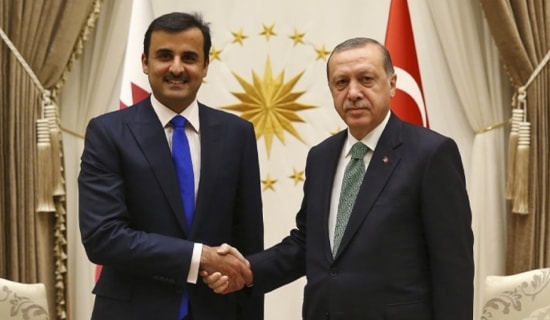Background
For years, the energy sector in Iraq has suffered from failure to supply electricity to the Iraqi population: UN sanctions that crippled Iraqi finances also stunted the capacity to acquire and repair power generating equipment; the problem was compounded during the invasion in 2003 when air strikes damaged power plants; and since the invasion, terrorist groups have made many attempts, some successful, to sabotage power stations and power lines. The consequence of all this is that power is available, at best, for no more than six hours a day, and even that limited supply reaches the consumers only intermittently. It appears also, according to the Inspector General of the Ministry of Electricity 'Alaa Muhiddin, that natural gas shipped by truck destined for power stations is stolen in collusion with some officials of the ministry. The theft of gas reduces power production by about 300-400 megawatts daily.[1]
According to government sources, Iraq currently produces 9,000 megawatts, but the demand during the hot summer season rises to 14,000 megawatts. The country would require investments of no less than $3-4 billion annually to reach the government target of 27,000 megawatts in the next four years.[2] In the last seven years, Iraq spent $27 billion for the energy sector. However, of this amount, only $7 billion was utilized for investment, while the remaining $20 billion was spent on operating costs and salaries.[3]
In July of this year, the Ministry of Electricity signed a contract with a Canadian company, CAPGENT, for $1.2 billion for the construction of 10 power stations with a production capacity of 100 megawatts each. The company was registered in Vancouver, Canada. It also signed a second contract with a German company, Maschinerbrau Halberstadt, for €500 million ($650 million) for the construction of five power stations with a production capacity of 100 megawatts each, to be completed within 12 months from the time a line of credit was extended. It now appears that the two companies are fictitious, and had the contracts been executed they would have would have constituted a monumental case of fraud involving senior officials of the Ministry of Electricity.
Documentation of the Fraud Case
The two fraudulent cases came to light thanks to the personal efforts of Jawad Hashim, a former minister of planning in Iraq during the early Ba'thist regime in the 1960s and early 1970s. In a handwritten letter to Iraqi Prime Minister Nouri al-Maliki, datelined Vancouver, Canada, August 2, 2011, Hashim detailed the fraud.
As a resident of Vancouver, Hashim decided to investigate the available information on the Canadian company while he asked the former minister of economy and governor of the Iraqi central bank, Fakhri Yassin Qadduri, who resides in Germany, to investigate the identity of the German company.
Available Information on the Canadian Company CAPGENT
As a rule, Hashim points out in his letter to the prime minister, the establishment and registration of companies in Canada is simple and is done with the payment of a small fee to the company registrar. No paid-up capital is required. A company is given a registration number which it can use until the owners choose a company name.
The Canadian company CAPGENT is on paper only. In May 20, 2008, a woman named Gisele Lorraine Summers registered the company and offered her modest home as an address [address provided in the attachment].
On May 6, 2011, about two months before the ministry of electricity signed the contract with CAPGENT, Ms. Summers asked the registrar of companies to change the name of her company from numerical to CANADIAN ALLIANCE FOR POWER GENERATION EQUIPMENT INC., or CAPGENT. She also asked that the name of Muhanned Samara, a resident of Amman, Jordan, be added as a director of the fictitious company, and that the company address be changed from her residence to one in downtown Vancouver. Upon further checking, Hashim could find no office at the new address other than that of an obscure lawyer in a rundown area of the city.
In short, Hashim contends, the company is fictitious and exists on paper only. Its establishment and the change in its name were made for the purpose of larceny. (A similar fictitious company was established by former Iraqi minister of defense Hazim Sha'lan to steal huge sums from the Iraqi defense ministry. Sha'lan is a fugitive.) Hashim attaches to his letter to the prime minister the registration documents from Vancouver as well as the photograph of the building that Muhanned Samara offered as the headquarters of the alleged company (see below).
The company established a website, www.capgent.net, and a telephone number for its alleged headquarters (+604-218-3979). A woman answered a phone call but, counter to the practice of large global companies, she refused to offer any information about the company or its finances.
As a former minister of planning, Hashim found it difficult to accept that a minister would sign contracts for amounts exceeding hundreds of millions of dollars – perhaps even billions – without secret biddings by specialized companies or through a special "invitation to bid" made to global companies. That a ministry of electricity, in the presence of its minister and its former secretary general, would sign a contract for $1.2 billion with a nonexistent company, Hashim wrote to the prime minister, is cause for serious concern.
Information about the German Company Hbh
Mascinenbau Habenstadt, known as Hbh, was partly owned by a Lebanese company under the name of "Sakr Lubnan" or "Sakr Group."According to numerous websites, the company declared bankruptcy on January 11, 2011, or six months before it signed a contract with the ministry of electricity in the presence of the minister and the former secretary general.
Hashim was able to uncover some facts surrounding Maschinerbrau Halberstadt with the help of Dr. Fakhry Qadduri, former minister of economy and former governor of the central bank of Iraq who was residing in Germany. Official German court documents indicate that the court took note of Hbh's declaration of bankruptcy on January 11, 2011. The company was rescued from bankruptcy through financial and administrative arrangements made by the company partners in Lebanon, the SAKR Group. The question is why the Iraqi Ministry of Electricity did not inquire about the financial position of the company before signing the contract, given that the bankruptcy was declared six months prior to the signing.
The letter included the following attachments:
1. Documents relating to the paper Canadian company
2. The photograph of the home that served as an address for the company
3. Picture of the building provided to the minister [of electricity] as the headquarters of the company
(See Appendix for the letter)
The Aftermath of Hashim's Letter: Twists and Turns of Iraqi Politics
Upon receiving the letter, Prime Minister Nouri al-Maliki issued an order late Saturday night, August 6, to "dismiss Minister of Electricity Ra'ad Shallal, after it was verified that he has signed on behalf the Ministry of Electricity fictitious procurement contracts worth $1.7 billion." Al-Maliki has also ordered a thorough investigation to identify those who were involved in the case. Al-Maliki did not indicate whether legal action will be taken against Shallal.
Shallal is a member of the al-'Hal Group ["Solution"] which is headed by Jamal al-Karbouli, who resides in Jordan but his group is part of al-Iraqiya parliamentary bloc led by Ayad Allawi, who nominated Shallal to his post. Al-Karbouli was wanted by the Interpol for embezzlement of a large amount of money from the Red Crescent Organizations; the charges had been dropped for lack of evidence.[4] Back in March of this year, negotiations with a Korean company to construct power plants were shifted at the last minute from Baghdad to Amman, Jordan, to make it easier for the Iraqi negotiators under the leadership of Shallah himself to extort the Korean company.[5]
The firing of Shallal does not seem to be final. Hussein al-Shahristani, Iraq's deputy prime minister in charge of energy and Shallal's predecessor at the ministry of electricity, said in a press conference in the parliament building that "Minister of Electricity Ra'ad Shallal remains at his job to manage the ministry until he is called by parliament." He went on to threaten legal action against anyone who seeks to "blackmail the Ministry of Electricity" – a curious statement, indeed. A more startling statement came from a source close to parliamentary speaker Osama al-Nujaifi, who is also a member of al-Iraqiya bloc. The source quoted Nujaifi as commenting that he expected a political compromise that will satisfy everyone and will keep Shallal in his job.[6] Ministry of Electricity inspector-general 'Alaa Muhiddin added his own curious statement: "These contracts are not fictitious but they are contracts with companies not qualified to deal with the Ministry of Electricity."[7] A leading member in the governing coalition, Izzat al-Shahbandar, said that the minister of electricity is known for his integrity and does not bear the responsibility for the fictitious contracts. He added that Shallal's firing by al-Maliki is related to the prime minister's plan to streamline the government.[8]
Shallal himself went on the attack, threatening to reveal "suspicious contracts" signed in the years prior to his becoming a minister and involving his predecessor, al-Shahristani, who is, as mentioned earlier, deputy prime minister in charge of the energy sector. One of these contracts, according to Shallal, was the purchase of two huge turbines, one from the American company General Electric and the other from the German company Siemens; according to Shallal, the turbines were never installed. [9]
The Ministry of Electricity and some of its supporters have argued that the signing of the contracts with the Canadian and German companies was done with the full knowledge of parliament and the council of ministers. Ministry spokesman Mut'ab al-Muddaris said that the ministry signed the contract "in complete transparency" and that in any case no payment was advanced to the companies. He added that the ministry has an ongoing problem of negotiating contracts given the Iraqi practice of deferred payments, and that regarding the contracts in question, no bank was prepared to provide guarantees to the contracted companies.[10] This may be true, but it does not answer the question about the absence of proper international competitive biddings for two contracts of that size.
The parliament's Integrity Committee claimed that both al-Maliki and his deputy Shahristani were involved in the two fictitious contracts.[11] The Transparency Organization in Iraq said that the contracts with the Canadian and German companies were copied to the prime minister and that he should have known.[12]
Conclusion
As of August 10, when this report was completed, the firing or non-firing of Iraqi Minister of Electricity Ra'ad Shallal is uncertain. In the meantime, reams of reports are becoming public about a disgraceful record of corruption in the ministry over a long period, showing billions of dollars going into the pockets of officials when the Iraqi people continue to wait in vain – and in high summer temperatures – for a regular supply of electric power.
Writing perhaps in jest, and before the fictitious contracts became public, an Iraqi writer praised the Ministry of Electricity for failing to supply power regularly. He noted that two important results ensued: one, crime and break-ins subsided sharply, because people stay in their homes to protect them in the darkness, and two, electric lines are strong enough to be used as clotheslines.[13]
Appendix: Hashim's Letter to the Iraqi Prime Minister







* Dr. Nimrod Raphaeli is a senior analyst at MEMRI.
[1] www.iraqdirectory.com August 5, 2011
[2] www.aknews.com August 8, 2011
[3] www.darbabl.net August 5. 2011
[4] www.alsumarianews.com August 6, 2011
[5] www.aliraqnews.com March 13, 2011
[6] www.alrafidayn.com August 8, 2011
[7] www.alsumaria.tv August 8, 2011
[8] www.alrafidayn.com August 9, 2011
[9] www.alrafidayn.com August 8, 2011
[10] Al-Zaman, Iraq, August 8, 2011
[11] http://basvoice.com August 9, 2011
[12] Al-Zaman, Iraq, August 10, 2011
[13] www.arabtimes.com July 31, 2011




